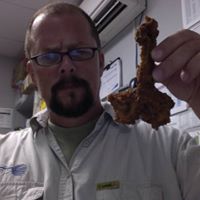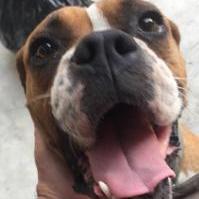Leaderboard
Popular Content
Showing content with the highest reputation on 07/31/2011 in all areas
-
SD, who the hell gave you a job? I don't even mean an EMT job, I mean who the hell hired you? What person would interview you and say that you're acceptable to hold any type of job, yet alone an EMT job. I don't think I'd hire you to clean the bathrooms for fear that you'd go crazy and insist on bringing your own "tactical" cleaning supplies. You're clearly a whacker (with your OC and cuffs), and now you're demanding discounts? The establishment determines the discount, if they want to give one. Sit back, let your bill come, and see if they give you one. Never ask. I don't care if you only had ten bucks on you, you should have gotten more. Use a credit card or something. Ask your partner to cover you. If I were your partner, I'd much rather have you mooch a few bucks off of me instead of making a scene an embarrassing the shit out of me.5 points
-
Do you know the definition of arrhhythmia SD? Any abnormal heart rhythm. Don't chew the poor kid out for wanting to listen to them...I have never shocked or done compressions on many arrhythmias; including A-fib and the occasional PVC. Nerd-yes occasionally you can hear an arrhythmia. A-fib has an irregular beat which you can usually hear. Now I wouldn't document an irregular rhythm from auscultation, as I don't know how precise it would be without special training. The only dumb question is the one that goes unasked.2 points
-
So, in my little cosey little rural area, the small town diners like to give us first responders breaks on our bills. Typically police, fire, and EMS get some type of break when they come and eat in their uniform. The local, family owned, doughnut shop gives us free doughnuts if we come in our uniforms. Coffee is also "on the house" sometimes. I guess this may be why police officers are associated with doughnuts, because they're also always hanging out there. Another family owned diner gives us a generous break when we eat at their place (around a third off). Some chain restaurants also give us breaks. Denny's gives us their employee discount, so does Burger King. However, today when I went into Denny's I didn't get my discount. My bill came and I noticed it was full price. I ordered a chicken fried steak, eggs, pancakes, and coffee, and I was being charged full price! I told the waitress (who was new), and she said that we had to pay full price (I knew from prior experience taking to the owner that we got the employee discount). I asked to talk to a manager, and she came out and apologized and gave us the discount. So this sparked my curiosity: what places give you free or discounted stuff?1 point
-
You are correct. There is no study. That's why I said in the original post that I'd like to see one. Just to see if there's validity to any of it. Let's run the tests and see if there's a decrease in the incidence of autism in the test group. If so, great. Let's run with it. If not, it's one more stone we didn't leave unturned. There are no established facts here. Just a theory worth investigating. Sent from my iPhone using Tapatalk1 point
-
I think it depends entirely on the maturity level of the kid in question. At 16 years old, I have to draw the line between "child" and "kid". I have no problem with 16 year olds going through entire EMT-Basic courses and getting their certs (finding work needs to wait, though). At that age there are kids I would trust my life to, and there are kids who I wouldn't want getting too close to the medicine cabinet. It's all case-by-case. In that story a lot of attention is paid on how young the kid was, sixteen. To me it's not that big of a deal; in just two years (provided he "just turned" 16) he could be working along side me in an ambulance. Teaching first aid to elementary school aged children is a different story, though. I actually do this frequently, I frequently volunteer to teach the local Boy Scout troop and Cub Scout pack first aid and CPR, and I also lead the first aid team at my church (where I also teach the youth first aid skills). I find that children can get confused really easily, and you need to focus on broad and simple concepts. For example, many of the younger cub scouts I deal with can't manage the thirty compressions then two breaths, thirty compressions, two breaths, all while remembering WHEN to do CPR (with the pulse check), proper hand placement, compression rate, ect. It's just way to much for them to remember, and the ones who can remember it will probably only remember it for a week at the most. So when teaching CPR, to children I have them skip the pulse check (I doubt many of them would be able to find a good pulse, anyways) and instruct them to do CPR if the patient is unresponsive and not breathing. I also teach them hands only CPR (no artificial respiration). It's much easier for them to remember, and I have a feeling most can "master" this and remember it if they ever need it. And the number one thing to pound into their head is to get somebody to call 911 ASAP. I'll actually take the time to teach full/proper CPR with the Boy Scouts (middle school and high school age). When it comes to other first aid skills, I make sure that whatever I'm teaching is age appropriate by making sure it's something that's unlikely to cause more harm if they do it incorrectly. I'm afraid when teaching smaller children that they'll do the WRONG thing in the emergency and make matters worse (all because of my training). With the younger ones, I teach them real simple things: Managing cuts, scrapes, ect... Applying pressure to stop bleeding (I don't cover pressure points) The concept of not removing impaled objects and immobilization Bites Poison Control (I give them info about the center and phone number) ect.... With the older ones, I might show them how to make some splints, ect. I NEVER discuss treatments for poisons because the wrong treatment for the wrong poison can cause way more harm than good. I guess the number one rule is make sure you're not teaching them something that they have a good chance of using and making matters worse.1 point
-
I'm unable to view the link, so I'll let my imagination take over. ha ha However, to answer your questions. The first "first aid" thing we should teach them is the "911" number when they are old enough to learn their phone number. Then, each child is different so you will have to determine per child what they can and can not learn. The youngest I've taught thus far is around the age of 7. It was a first aid awareness type of class for the Brownies. Very short attention spans so you have to make it fun. We used dolls as our patients and I taught them how to use "stuff in the kitchen" to help stop the bleeding. We had fun. (Side note, I've also taught CPR/AED to the blind. Never discount a person's ability because of a disability.) But, teaching them how and when to call 911 for help is probably the best thing you can do. Get someone on the other end of the line who can help provide guidance. FYI, dispatchers around my area tell me frequently, they'd rather have a child call 911 for an emergency over an adult. The child, they can calm.1 point
-
1 point
-
Katiebug, just mentioning 2 minor reliefs from that day. When working the secondary assignment, I was next to an ambulance that had a dead battery, and whose crew was somewhere on the large area of the call. In no particular order, lieutenants, captains and chiefs came up to me and asked me to move "my" ambulance elsewhere. I had to tell them it wasn't my ambulance. "Where IS your ambulance? "No clue, 'Boss'". "How can you NOT know where your ambulance is?" "I responded from my home, 'Boss'. If you look down the street, there's my van 3 blocks away." "(Yammida, yammida, yammida) Carry on, Mr B". The other was, my home was just off the avenue, and my girlfriend's is the corner house, equidistant from the crash site to east and west. We both joke that it's been the only thing to come between us.1 point
-
lol some of these things, you guys definitely SHOULD have been taught in class! A few of my own: - The need for resilient patient advocacy in the face of everyone else (partner, police, supervisor, fire department, family) wanting you to take a shortcut. Don't ever get lazy or forget that your patient comes first. - How critical the turn-over report really is. Specifically, the first 10 seconds of a turnover report. You make an impression either way, but it is up to you to capture your audience or not. They won't wait for you. - How little we really know. Be humble. You are the brains and experience out in the field but anywhere else in medicine you are just an infant with an ego. Try to remind yourself of that on a daily basis. - Don't fall into the trap of eating out all the time. - That it isn't your emergency. People say this all the time in school but it doesn't really hit home till you're out there for a while. It is your job to be calm and retain the ability to look at things objectively. That means you need to stay above the hysteria by whatever means necessary. - How important it is to look and act professionally at all time. It matters more than we realize, to both our patients and our colleagues. - Continuing education. Do it. Not just the minimum. Find out what the outcome was with your patients and reevaluate your approach constantly. - etc.1 point
-
To answer your question, yes, tachycardia does not necessarily mean high B/P I dont know where this guy got the tachycardia = hypertension from. There's a myriad of reasons why a person will be tachycardic, and theres a myriad that will have no effect on, or caused by blood pressure amd they are too numerous to list. Relationship between poorly perfused patients and their vital signs are dynamic, complex and different for each individual and cant be placed into canned responses like this fellow on scene has done.1 point
-
1 point
-
This thread makes me miss the days when the local Dr. could fix everything. They had to be prepared for whatever came through their doors. If they didn’t have a solution they pretty well made one up. So with this in mind a good dose of pre-hospital care knowledge would possibly be advantageous to make anyone, including Drs. producing more well rounded professionals and better citizens. Don’t get me wrong, specialization gives us great benefits and greater medical bills because so many professionals do not seek diversity in their training. Well rounded may not bring them more money but in the end isn’t service what we are all about? Physicians may never need pre-hospital emergency skills but if they ever do need them. I am sure they will be glad they took the time to prepare. It shouldn’t be the backbone of a medical program but would surely add value if included in pre-med education.1 point
-
I will bet you a month's wages that you can hear tachycardia, bradycardia, PVCs, A-fib...and often I won't do anything about any of those rhythms. It's easier to feel those things in the pulse, but they can certainly be heard.. SD, you go back and forth from me looking forward to your posts to me wanting to kick you right in the balls...But hey, you always generate discussion and don't cry like a little girl when you do get bit...so I remain happy that you're here.. :-) Dwayne1 point
-
Yeah, that's something I always thought was crazy about most scenarios in school. If your patient appears fine, they are going to die no matter what you do, and if they are certainly going to die, your miracle intervention saves them. In my experience nearly all of our really critical patients fall somewhere in the middle and end up being a balancing act. Sounds like a tough call... Dwayne1 point
-
I would never confront someone and either request or demand a freebie or discount, just because of my uniform. In fact, I think the only discount I ever used with a 10% off for fire/ems personnel at a sporting goods store that sells rope and rappelling equipment... and I was buying spools of 1" tubular webbing, for the fire dept., so I didn't really benefit from it - personally. The only thing I deserve, is what I earn. I don't feel anyone owes me for anything. That's just how I am.1 point
-
Edit. Before posting I only read, "Do you not see a problem with that statement." from Bushy's post..after reading the next sentence after posting I realize that my post is not only much less elegant, but now completely redundant. Sorry about that... :-) I'm guessing that you don't work in the fire services at this time. Would that be accurate? Your statement is true, EMS makes a great addition to the fire services. It adds money. The fire services on the other hand do nothing but retard EMS's ability to become an accepted profession as, in general, they have contempt for education. They have been lauded as heros for so long for simply applying C-collars and putting on O2 that they seem to have come to believe that that is all that is really necessary to be a medic. To be a good medic you have to be supremely accountable and the fire services are famous for being unaccountable for their mistakes. Excuses instead of responsibility, ignorance instead of education, denial instead of positive change means that Fire Medic is nearly an oxymoron. The reason that I believe that you haven't worked in the fire services yet is that when you do, you will find that your college education will be considered a weakness instead of a strength, generally speaking. It's common to hear comments in the forums from firemen saying, "You can spot the medic with a college education because he'll be running around terrified while I get all of the important shit done." For more than a decade now there have been states trying to create AAS entry level requirements for medics, and in each case the fire services spend millions on ads saying something to the effect, "Your government wants your heros in a classroom instead of out on the streets saving lives!" With the mandatory picture of some shithead running out of a burning building carrying a baby of course... I have met and been blessed to learn from a few really, really good fire medics. But in general, if you view your comments as a country, which we must, the cost/benefit is sloped so far away from EMS as to be laughable. That is what Bushy meant about your thoughts being wrong. You implied that EMS can become it's own, respected profession by being absorbed by the one industry that despises it the most...Never going to happen brother. The fire services involvement in EMS has already pushed EMS back, maybe 20 years, and further involvement shows no signs of reversing that trend... See what I mean? Dwayne1 point
-
Do you not see a problem with that statement? If you want it to grow, leave it the hell out of fire fighting and leave it as a stand alone profession, not your adopted orphan.1 point
-
They dont tell you that you might not get past "A".....................1 point
-
A supervisor saw I was "losing it", while working, on my day off, and having responded from my home roughly a half mile away from the scene of the crash of American Airlines Flight 587, November 12, 2001, Newport Avenue and Beach 131st Street, Belle Harbor section of Queens County, NYC, NY. We lost all 260 souls from the aircraft, and another 5 on the ground. The supervisor put me on a different detail on the scene, a distance away from where the body bags were being loaded for transport to the temporary morgue. This was on top of the strain everyone in NYC was still under, from the attack on, and the collapse of, the World Trade Center, only 2 months prior.1 point
-
I didn't read the other replies, so im sure this has already been said SD, ridiculous, childish, moronic thread man. Is this what you do? look for discounts based on your hero status? I guess you deserve it, trail blazing medic that gets results and all? entitled to freebies and you keep a list of where you can get them? -1 for a stupid thread -10 on the dustdevil scale for just being a tool.1 point
-
I say this program is worth a shot. Any "alternative" approach that encourages learning to engage with your patient is beneficial; my guess is those folks who want to go be podiatrists aren't that interested in an EMS-centric program anyway, and will opt for the more traditional programs. Bet these future grads will be *bitchin* ER docs and medical directors! Is it the best idea ever? Nah. Is it unique enough that it could prove to be valuable? Definitely. I have friends that are babydocs of various stages and flavors... and the UNIVERSAL problem that I see is the inability to view things from the patient's perspective. It's all about being right, and figuring out the puzzle for these guys and gals... because that's what it takes to get through medical school. I had one babydoc acquaintance (who disabled posting to his Facebook wall soon after our little tiff...) who said that he would have to cede care of anyone stupid enough not to realize that high sodium intake means increased blood pressure. I jabbed him here and there about the role of physician as educator and the duty to take care of even the dumbkopfs, even when they resist your teaching or are noncompliant with important therapies. He didn't like that very much, because I rained on his little bitchy-parade. He said it was his right as a future physician to choose who to treat and who to turf to others. We haven't spoken much since (but he was kind of a prick in undergrad anyway, so... no giant loss there.) I sincerely hope he's learned some compassion along the way... Point being, with that story, is that EMS kind of forces you to think outside of the box if you're a provider who's at all interested in the bigger picture. Once you move past the "hero" stage, once you realize just how much you don't know, and once you start educating yourself and putting the sociological pieces together with the pathophysiology (not to mention a smattering of psychology here or there), your mental medical world opens up to a vast degree. A medical school program that has instructors willing to take the risk of flying in the face of "accepted" teaching holds a lot of promise... execution, however, means everything and it will be interesting to see how long this program lasts. If these babydocs are paired with jaded old nasty paramedics who don't give a damn about improving practice or empathetic care, then it's probably going to be a bust. Wendy CO EMT-B1 point
-
What's your equipment? The monitors that we use don't advise the shock, we have to interpret that stuff. We might be old school, though. Not that's it's really a big deal or anything. In response to everyone giving shit for recruiting help out of the lobby, it's happens. In rural areas it's somewhat common. I've seen it happen a few times, but usually to people on duty. The compressions sounded futile. You had a patient who was in asystole for who knows how long. Pump him with some Epinephrine, do a few rounds of CPR, but he's probably not coming back. I'm surprised a doctor didn't call it over sooner that he did. Maybe the medic was simply saying, "I'm not getting involved compressing a corpse." That would explain why he initially accompanied you, then left when he saw the patient. All this being said, I've done CPR without gloves before. Unless the patient's bleeding, the risks are pretty low of contracting anything. I'm all for universal BSI precautions, but you shake hands without using gloves, how's this any different?1 point
-
Medical school is hard & complex enough without this added annoyance. Unless you're planning to work in an ER, EMT training is going to be of little practical use. Granted, all students should know BLS & ALS practices, but why if somebody wants to be a dermatologist, then why should they have to ride an ambulance to do so? Hell, if somebody wants to be a general practitioner, why should they have to ride an ambulance? Remember when you guys jumped on me for carrying LE equipment and having combat training? This is similar to that. Doctors and EMTs have very different jobs, and I think it's silly to require that doctors learn how to be EMTs. Plus, I'd probably hate to ride with a med student. I have a strong feeling they'd be full of themselves.1 point
-
I sort of agree with you guys. I normally wouldn't have asked but I only brought in $10 (I figured the discount when I was counting my money in my rig). My bill was initially over that, so it was either get my discount or not pay. Plus, that wasn't even figuring the tip (which I wouldn't have been able to provide). I can understand drawing the line at giving the police a discount. There's a benefit to having a police officer inside your location (who in their right mind is going to rob you?). EMS and Fire is a slippery slope. As Dwayne said, why not teachers? Why not priests? Why not any other type of employee? Almost everybody works, so why not give a "worker's discount"? The answer is because it's advantageous to have uniformed first responders in your restaurant.0 points
-
Pre-test for EMT-B... NO! It is an entry level position. Pre-test for EMT-P... YES! If you do not have EMT-B knowledge mastered then you should not be a Paramedic!-1 points
-
I wasn't chewing him out, I actually think it's a good question. Yeah, the hard definition of "arrhythmia" is any abnormal heart rhythm, but I figured he meant something like v-fib or v-tach considering he's an EMT-B, not a cardiologist. All this being said, you should probably be doing something else if you suspect an arrhythmia.-1 points
-
Yeah, depending on the arrhythmia and if you know what you're listening for. It's way easier to EKG that stuff, though. This being said, why would you want to do listen for an arrhythmia? If a patient has an arrhythmia, you should be hooking them up and getting them ready for a shock (not sitting and listening for abnormalities in their heart beat). If you don't have a defibrillator, you probably should be doing compressions, not listening for abnormalities in their heart beat. So yes, theoretically you can, although there's no practical reason to do this. EDIT: Grammar.-3 points








